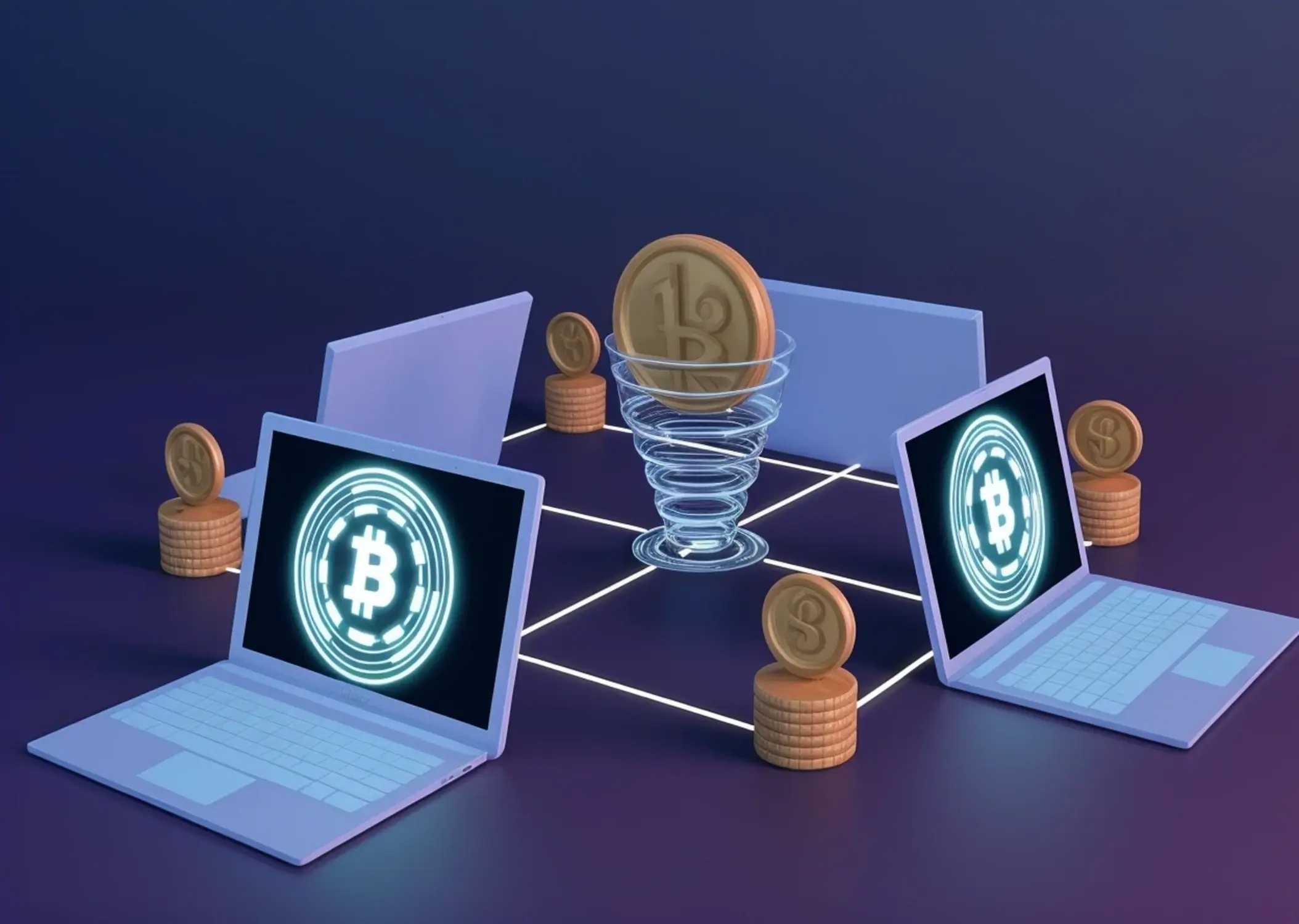The Hidden Truth About Pi Network’s Role in Bridging DeFi and Traditional Finance
The intersection of DeFi and traditional finance is rapidly evolving, and Pi Network is playing a pivotal role in this transition. With its growing user base and innovative mobile-first DEX strategy, we explore why now is the critical time to understand Pi Network’s contributions to cryptocurrency adoption.
Understanding Pi Network’s Growth and Impact
Pi Network has experienced remarkable growth, amassing over 50 million users globally. This expansive user base underscores its significance in the cryptocurrency landscape as a platform that aims to democratize access to financial services. Unlike traditional financial models, which often exclude a significant portion of the population, Pi Network challenges these barriers by providing a decentralized platform that emphasizes user participation.
In a world where financial systems often alienate individuals lacking resources, Pi Network serves as a bridge, connecting users with commercial opportunities typically inaccessible to them. With a mobilized approach to decentralized finance, or DeFi, Pi Network not only promotes cryptocurrency adoption but also aligns with the emerging ethos of financial inclusivity. As it scales its operations, it seeks to reshape traditional finance dynamics, making them more user-centric, thus actively participating in redefining how we perceive and engage with financial systems.
The Necessity of DeFi in Today’s Financial Ecosystem
The shift towards decentralized finance marks a critical juncture in modern financial ecosystems. DeFi presents a fundamental departure from centralized financial models, which are often plagued by inefficiencies and lack of transparency. As industry experts point out, the rise of DeFi is primarily fueled by the desire for greater autonomy over financial assets and transactions.
Centralized systems pose inherent risks, including exposure to systemic failures, regulatory pitfalls, and centralized control over personal financial information. These vulnerabilities necessitate a robust integration of DeFi principles into mainstream finance to foster resilience and transparency. As recent developments reflect a shift towards DeFi adoption within traditional financial circles, it becomes evident that the integration of decentralized solutions is crucial not only for user empowerment but also for the stability of the broader financial ecosystem.
Innovations Fueling DeFi and Traditional Finance Convergence
Innovative technologies introduced by platforms like Pi Network are bridging the gap between DeFi and traditional finance. Pi Network’s mobile-first DEX strategy is particularly notable. By leveraging its substantial user base, it provides unique tools that enhance user autonomy and engagement with the financial landscape.
Emerging tools, including decentralized applications (dApps), are changing how users interact with finance, offering increased functionality while minimizing reliance on intermediaries. Moreover, community-driven innovations are crucial in this evolution, as they empower users to participate in creating solutions tailored to their needs. As detailed in a recent analysis, Pi Network is poised for a significant leap with its DEX Mainnet launch, shifting focus from speculative trading to productivity metrics such as node activity and dApp usage. This pivot not only mitigates risks around price manipulation but also fosters a more stable environment for user engagement.
Regulatory Changes Supporting DeFi Growth
Recent regulatory frameworks, including the U.S. DeFi Relief Act, are pivotal for promoting the growth of DeFi. These regulations aim to provide a supportive landscape for platforms like Pi Network, encouraging not just user adoption but also institutional investments. As regulatory clarity improves, the foundation for a safer and more transparent DeFi ecosystem strengthens.
The potential impact of these changes is substantial. By delineating clear guidelines, regulatory bodies can facilitate broader participation from traditional financial institutions, ultimately leading to increased liquidity and market maturity. The convergence of institutional and retail users in the DeFi space represents a shift towards a more inclusive financial ecosystem, crucial in meeting diverse financial needs globally.
User Empowerment through Self-Custody Mechanisms
Self-custody mechanisms are at the heart of the DeFi movement, allowing users full control over their assets. Pi Network is particularly adept at enabling this self-custody, presenting users with a way to manage their digital assets independently. This empowerment directly translates into heightened security and autonomy in financial transactions.
Understanding self-custody and its benefits is essential in today’s digital financial landscape. Unlike traditional models that often place control in the hands of intermediaries, self-custody empowers users to take charge of their financial destinies. As users gain confidence in managing their assets without relying on third parties, the overarching narrative of financial independence continues to gain momentum, reinforcing the transformative potential of decentralized finance.

Leveraging Pi Network for Improved Financial Accessibility
Pi Network is on a mission to democratize financial services, which is particularly crucial for users in developing countries. By leveraging its decentralized model, Pi Network offers users access to services that were previously unattainable, such as cryptocurrency transactions and DeFi protocols. This increased accessibility can transform lives, providing individuals in underserved regions opportunities for economic participation.
For example, by utilizing Pi Network for daily transactions, users can bypass traditional banking systems that often impose high fees or reject access based on socioeconomic status. Strategies to effectively leverage Pi’s platform for everyday needs are vital, particularly as adoption continues to grow across varying demographics. Users can engage with the network to transfer value instantly, save costs, and access new investment avenues that reflect the principles of DeFi.
Future Perspectives on DeFi and Traditional Finance Integration
Looking ahead, Pi Network’s evolution is poised to significantly influence the future of finance. Predictions indicate that as DeFi continues to gain traction, platforms like Pi Network will increasingly play a critical role in the mainstream adoption of these technologies. The long-term significance of the DeFi movement cannot be understated, as it drives forward a narrative of inclusivity, transparency, and user empowerment.
As users navigate this rapidly evolving landscape, it is important to remain informed about developments within the DeFi ecosystem. Key considerations include understanding potential investor dynamics, technological evolutions, and the implications of regulatory changes. Engaging with the opportunities presented by Pi Network could empower users to partake in shaping a future where decentralized solutions are integral to financial systems worldwide.
In conclusion, the emergence of Pi Network as a key player in bridging DeFi with traditional finance symbolizes a transformative shift towards inclusivity in financial services. As it pioneers new pathways for access, control, and community engagement, the potential for cryptocurrency adoption and integration into everyday financial practices becomes increasingly tangible.


